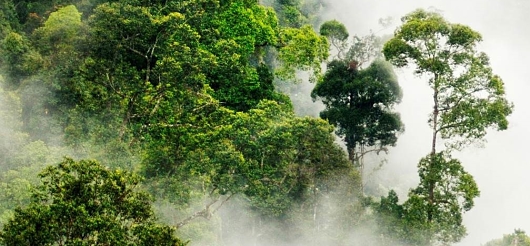REDD+ and community forestry: lessons learned from an exchange between Brazil and Africa
22 April 2016
22 April 2016
This publication is the result of an initiative by the Forest Carbon Partnership Facility, with funding from the Global Environment Facility, to promote an exchange between Brazil and Africa on lessons learned about the role of community forestry as a strategy to achieve the goals of REDD+.
The results presented...
As one of the leading near-term options for global climate change mitigation,
REDD+ has been piloted in over 300 subnational initiatives across the tropics.
This book describes 23 of those initiatives in six countries: Brazil, Peru, Cameroon, Tanzania, Indonesia and Vietnam. These initiatives were selected in large part because they had defined...
Approaches to benefit sharing - A preliminary comparative analysis of 13 REDD+ countries
22 April 2016
22 April 2016
The aim of this working paper is to provide a global overview and up‑to‑date profile of REDD+ benefit‑sharing mechanisms, and to analyse the political‑economic factors influencing their design and setting. The analysis draws primarily on a review of existing benefit‑sharing mechanisms for REDD+ and natural forest management, namely fund‑based approaches,...
Using spatial information to support decisions on safeguards and multiple benefits for REDD+ in Tanzania
22 April 2016
22 April 2016
REDD+ has the potential to contribute to achieving more policy goals than climate mitigation alone. In Tanzania, REDD+ is expected to deliver multiple benefits, whose nature and extent will depend on the location and type of REDD+ activity implemented. These benefits include sustainable use of forest resources, biodiversity conservation, poverty...
Forest reference emission levels
22 April 2016
22 April 2016
This website shows a list of countries that submitted a proposed forest reference emission level and/or forest reference level.
How are REDD+ proponents addressing tenure problems? Evidence from Brazil, Cameroon, Tanzania, Indonesia, and Vietnam
04 November 2014
04 November 2014
This paper assesses proponent activities to address tenure insecurity in light of actions required for effective and equitable implementation of REDD+. Field research was carried out at 19 REDD+ project sites and 71 villages in Brazil, Cameroon, Tanzania, Indonesia, and Vietnam. Results show proponents addressed tenure insecurity by demarcating village...
Lessons learned for REDD+ from PES and conservation incentive programs. Examples from Costa Rica, Mexico, and Ecuador.
24 October 2014
24 October 2014
This report forms a part of that work and describes lessons learned in five key areas:
a) Legal aspects of PES, conservation incentives and REDD+ programs through the lens of participation agreements; b) Poverty reduction, livelihoods, and other equity issues; c) Evaluating and managing trade-offs and synergies between programs, sectors and...
Benefit sharing in practice: insights for REDD+ initiatives
23 October 2014
23 October 2014
The objective of this study is twofold. The first is to examine existing arrangements for sharing benefits and extract insights from existing community-based natural resource management (CBNRM) arrangements that involve sharing benefits, specifically insights regarding how benefits are determined, how beneficiaries are identified, and how the set-up is influencing the...
Tenure of indigenous peoples territories and REDD+ as a forestry management incentive: the case of Mesoamerican countries
11 August 2014
11 August 2014
Programmes to reduce emissions from deforestation and ecosystem degradation, such as REDD+ and other forestry incentive programmes, including Payment for Environmental Services (PES), could represent an opportunity to strengthen processes of conservation, sustainable usage and poverty reduction in the Mesoamerican region, particularly in indigenous territories and communities.
Analysing the context...
The Government of the Republic of Zambia is currently assessing the opportunity that REDD+ may provide through different forest and land management practices in Zambia. As one of the fourteen developing countries piloting the UN-REDD Programme, Zambia is determined to take advantage of these opportunities. Well-designed REDD+ frameworks are expected...

